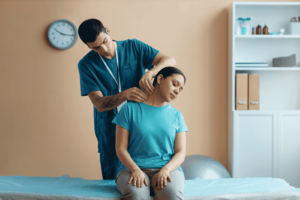TikTok has become the playground of millennials scrolling through their phones. Valuable and harmful information has become more accessible. It’s no secret: plenty of young people are now looking towards influencers for advice about health and wellness.
According to a new online survey from Healthline Media and YouGov, many millennials and Generation Z members now rely on social media for health information. However, these discoveries also make known gaps in routine preventive care screenings.
A new online survey from Healthline Media and YouGov found that many Millennials and Gen Zers rely on social media for health information.
Gaps in Health Screenings
One crucial reason you (and the younger generation) must forget about skipping health screenings is the alarming statistics. In September 2024, 4012 American adults were surveyed, and 37% of these adults look to their doctor as their preferred source of health information.
Less than half, 42%, of respondents received an annual physical exam last year. Only 37% had a routine exam and cleaning for their teeth. Others had very low rates—a sorry state for the medical community.
Routine screenings and check-ups, such as the executive check-up, are crucial because they are essential in improving disease outcomes, especially for hard-to-catch diagnoses. Screenings set a baseline for long-term disease and condition monitoring. This baseline is instrumental in guiding clinicians and patients when making healthcare decisions such as treatment and lifestyle modifications.
Prevention, Early Diagnosis, and Immediate Treatment
Another rationale for why you should not skip your yearly and annual health screenings is for prevention.
When a disease is screened, detected, and diagnosed early, there is a higher chance of success in treatment and cure.
Some health screenings include the following:
- Urinalysis: This test requires a pee sample. It helps detect if you have an infection, diabetes, or kidney or liver issues. This test also helps monitor certain health conditions, such as a UTI or liver, and may even be ordered if you’re preparing for surgery. If a UTI is detected, early intervention with options like Wisp OTC UTI treatment can help alleviate symptoms before they worsen.
- Colonoscopy: This test determines whether you have colon cancer. A healthcare provider will examine the inside of your entire colon (large intestine).
- Complete Blood Count (CBC): The CBC test measures your total blood count; it is instrumental in detecting and diagnosing diseases like leukemia.
The screenings you need to take may also depend on your current state of health.
Discussing Symptoms
When you’re experiencing physical symptoms, it can be easy to attribute headaches and sleep problems to stress. However, sometimes, it’s only a small part of the bigger picture. Headaches and sleep problems can be caused by sleep apnea.
Fortunately, this is the part where having health screenings come in. They help you narrow down certain conditions, as some diseases have overlapping symptoms. After you’ve had your screenings and gotten the results from a Reference Laboratory Metro Manila, you can visit and discuss your symptoms with your doctor. The doctor will review your symptoms and medical history and even ask for you to take a test or two.
Reviewing Current Habits
You and your healthcare provider must also review your health habits when having health screenings such as check-ups. This will ensure that you’re on the right track to making good choices that can help support your health and prevent sickness.
They will also assess your current eating and drinking habits, exercise habits, and sleep patterns. For those with chronic illnesses, necessary adjustments will also be made to medication, especially in managing your condition.
Wrapping Up
Thanks to TikTok, valuable and harmful health insights are now more accessible online. Most young people rely on the internet for their well-being, but statistics on health screenings show that many young people forgo their needed routine screenings.
We advise young people to be more discerning about who they are following for health advice. Still, most importantly, they also need to remember that you need to stay updated on your current health through regularly having your different check-ups and screenings. This way, you can protect yourself from disease and stay updated on any health issues you face.





Be First to Comment